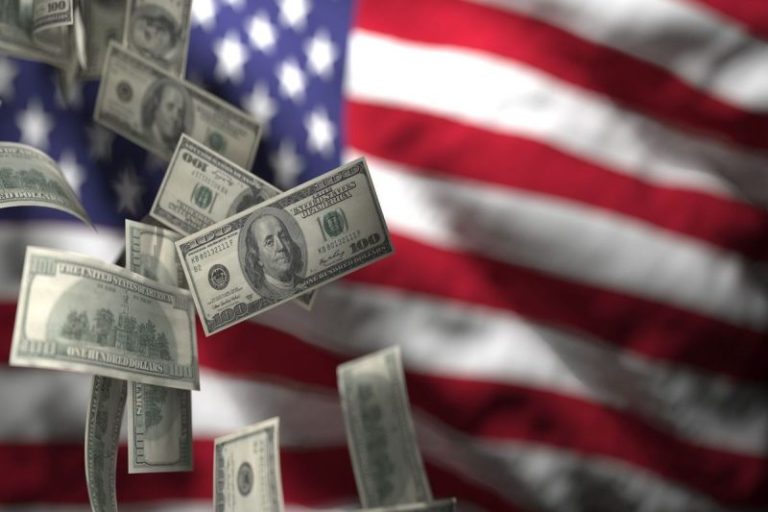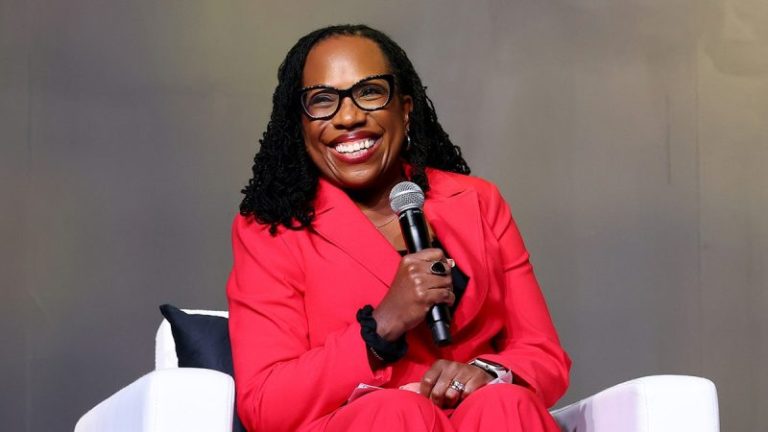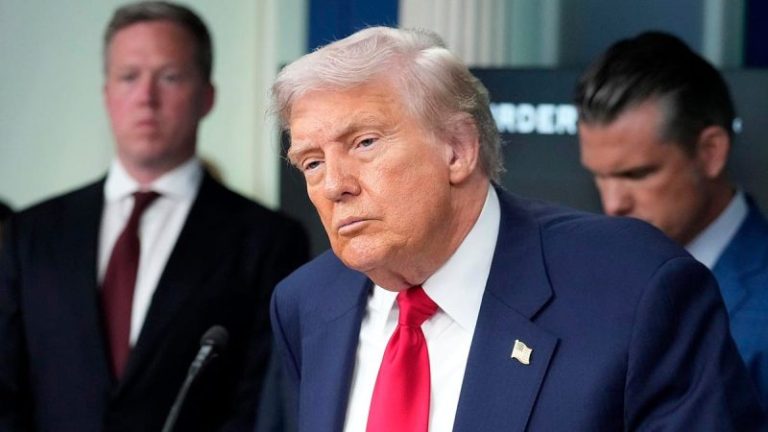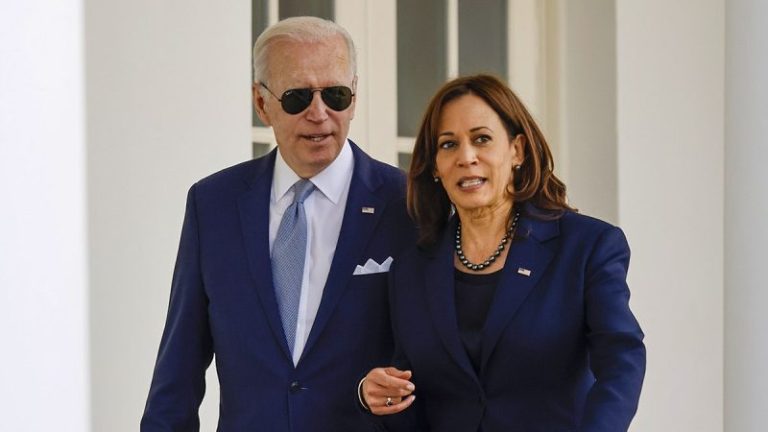Hours of interviews between Jeffrey Epstein associate Ghislaine Maxwell and a federal prosecutor were released by the Department of Justice on Friday afternoon.
During the recorded sessions in which the convicted sex offender, who was found guilty for her role in Epstein’s crimes, was granted immunity, she made several interesting claims.
Here are 10 top takeaways.
Claims there is no client list
Maxwell denied the existence of a black book with Epstein’s clients on it – and least to her knowledge.
‘There is no list,’ she told Deputy Attorney General Todd Blanche.
Maxwell said she believed the origin of rumors that there was a list came in 2009 after Epstein had finished a 13-month sex trafficking sentence in Florida, and a lawyer at Rothstein Adler involved in a civil suit against him called the FBI to say he had a ‘piece of evidence’ that belongs to Epstein.
That was ‘the list,’ she claimed, adding that she believes he became a confidential informant to the FBI.
She said he obtained the list through a sting operation involving Epstein’s former butler, who said in a deposition he had ‘handwritten notes, or a journal, whatever.’
Doesn’t believe Epstein killed himself
Maxwell said she doesn’t believe Epstein killed himself when he was found hanging in his New York jail cell in 2019.
‘I do not believe he died by suicide, no,’ she told Blanche when asked.
She added that she didn’t have any speculation about who could have killed him, but claimed the U.S. Bureau of Prisons is rife with mismanagement.
‘If it is indeed murder, I believe it was an internal situation,’ she said, adding she didn’t believe his death was a way to silence him.
‘I do not have any reason to believe that,’ she told Blanche. ‘And I also think it’s ludicrous because if that – I also happen to think if that is what they wanted, they would’ve had plenty of opportunity when he wasn’t in jail. And if they were worried about blackmail or anything from him, he would’ve been a very easy target.’
Never saw President Donald Trump do anything inappropriate
Maxwell said while she believes President Trump (before he was president) and Epstein were friendly, she didn’t think they were ‘close.’
‘I think they were friendly, like people are in social settings. I don’t — I don’t think they were close friends or I certainly never witnessed the president in any of — I don’t recall ever seeing him in his house, for instance.’ she said. ‘I actually never saw the president in any type of massage setting.’
She added, ‘I never witnessed the president in any inappropriate setting in any way. The president was never inappropriate with anybody. In the times that I was with him, he was a gentleman in all respects.’
Former President Bill Clinton never went to Epstein’s island
Maxwell claimed that former President Bill Clinton, whose name has previously been linked to Epstein, ‘absolutely never went’ to Epstein’s Caribbean island where sex trafficking of young girls took place.
She added, ‘I can be sure of that because there’s no way he would’ve gone – I don’t believe there’s any way that he would’ve gone to the island, had I not been there. Because I don’t believe he had 16 an independent friendship, if you will, with Epstein.’
She also said that Clinton was her friend, not Epstein’s, and that she knew him through the Clinton Global Initiative and was part of the inception of the organization.
Calls Epstein ‘disgusting,’ but doesn’t believe he’s guilty of everything he was accused of
Maxwell called Epstein ‘disgusting’ in the interview but said she doesn’t believe he was guilty of all the accusations.
‘I do believe that Epstein did a lot of, not all, but some of what he’s accused of, and I’m not here to defend him in any respect whatsoever,’ Maxwell told Blanche. ‘I don’t want to, and I don’t think he requires, nor deserves any type of protection or – from me in any way, to sugarcoat what he did or didn’t do.’
She added, ‘This is one man. He’s not some – they’ve made him into this – he’s not that interesting. He’s a disgusting guy who did terrible things to young kids.’
Never saw Prince Andrew do anything inappropriate and believes the photo of him with accuser Virginia Giuffre is fake
Maxwell told Blanche that she also never saw Prince Andrew do anything inappropriate while she was with him, adding that she believes the infamous photo of the prince with his hand around accuser Virginia Giuffre when she was 17 isn’t real.
‘I believe it’s literally a fake photo,’ she said of the picture, purported to have been taken at her former London townhouse. ‘I do not know that they met.’
Giuffre died of suicide earlier this year. She had accused the royal of forcing her into sex inside Maxwell’s home in London’s ritzy Belgravia neighborhood. The prince was relieved of his royal duties amid fallout from the scandal but has always denied allegations of wrongdoing. He agreed to pay Giuffre an undisclosed settlement in 2022 and to donate to her charity for crime victims.
Maxwells claims she has memory problems after being on suicide watch for 2 years
Maxwell claimed to Blanche her ‘memory’s not as good as it was’ because she was kept on suicide watch at the Metropolitan Detention Center in Brooklyn after her arrest for nearly two years, and she was woken up every 15 minutes.
She said because of her memory lapses she had taken notes before the interviews, and throughout the interview still struggled to recall many details.
Claims Epstein had a heart condition and told her he couldn’t have sex often
Maxwell said that when she traveled with Epstein, they slept in the same bed, but he told her he had a heart condition and couldn’t have sex frequently.
‘Which meant that he didn’t have intercourse a lot, which suited me fine, because I actually do have a medical condition, which precludes me having a lot of intercourse,’ she told Blanche.
She added that she didn’t know the exact nature of the condition, but he liked ‘other forms of sexual activities.’
Claims Epstein never loved her and said she wasn’t his type and that he told people to lie to her
Maxwell told Blanche she and Epstein had a friends with benefits relationship while she was working with him, but at one point Epstein said that one of his associates didn’t want to be seen with her too much because of her father’s company’s embezzlement accusations.
But she said she believed that was all a ruse just to keep her from traveling with Epstein.
‘Today – not contemporaneously, but today I don’t believe that that’s even true. I think it was used as a means to not have me travel with him to Ohio or whatever. It was just a way to park me,’ she said.
She added that after her arrest during the legal discovery process she saw evidence that ‘he would actively tell other people to lie to me or conceal things from me, and that he never loved me and I wasn’t his type.’
Claims Epstein took testosterone, which altered his character
Maxwell also claimed that in the late ‘90s, Epstein started taking testosterone, ‘and that altered his character.’
While discussing the frequency at which he got sexual massages, she said the testosterone both made him more ‘aggressive’ and she thought it likely ‘altered his desires.’
Maxwell is serving a 20-year prison sentence for sex trafficking of minors.
This post appeared first on FOX NEWS










